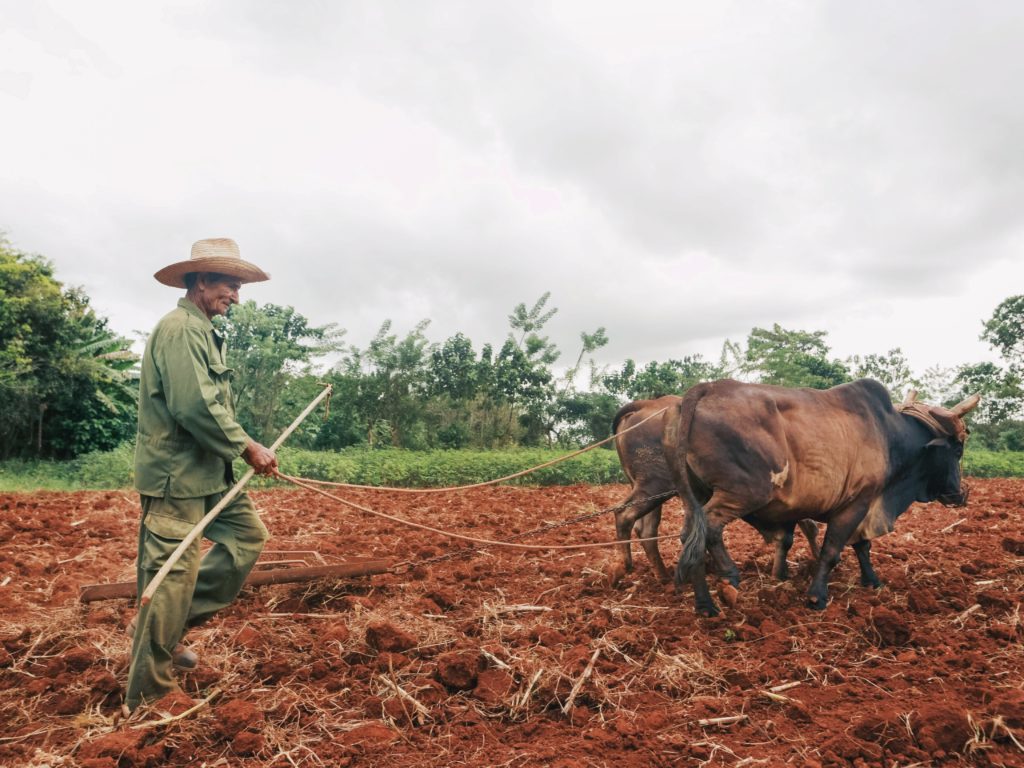
Black Land Reform in Agriculture
We are almost 30 years into the idealistic vision that Nelson Mandela had for South Africa and the failure of Agricultural reform is tangible. Besides the Land Distribution, Land Restitution, and land Tenure Reform, 75% of all redistributed farms failed. Research shows that the reason for this failure is that these farms are given to individuals without preparing them for the management of the land. The lack of skills and lack of managerial and agricultural knowledge contribute to community conflict and that leads to the desertion of these farms, more and more farms become unproductive, and this spells disaster for food security in our country.
By Marinda Sauerman
We are almost 30 years into the idealistic vision that Nelson Mandela had for South Africa and the failure of Agricultural reform is tangible. Besides the Land Distribution, Land Restitution, and land Tenure Reform, 75% of all redistributed farms failed. Research shows that the reason for this failure is that these farms are given to individuals without preparing them for the management of the land. The lack of skills and lack of managerial and agricultural knowledge contribute to community conflict and that leads to the desertion of these farms, more and more farms become unproductive, and this spells disaster for food security in our country.
Definition of Land Retribution
Taking land away from large landowners or taking state owned land and redistributing it to tenants and the previously disadvantaged.
Definition of Land Restitution
The promise of empowering farm workers by giving them the opportunity to become farmers and reduce inequality between black and white owned farms by taking back land that belonged to them before June 1913 or at least compensate them for their loss.
Definition of Land Tenure Reform
The relationship that individuals and groups hold with respect to land and land-based resources, such as trees, minerals, pastures, and water.
Do all farm workers know exactly how to go about applying for farmland?
Apparently not. The workers on a farm in the North west say they have not been educated by the government on the process. Might it be that South African farm workers that are passionate about farming, just do not know how to apply for state help? Let’s simplify the process in such a way that it will make sense to every person that walks the fields of South Africa’s farms.
Q&A on process of getting help from the state to become a farm owner:
Where do I start if I want to apply for LRAD (Land distribution for agricultural development)?
*Contact the department of agriculture and rural development (They usually advertise upcoming
Funding opportunities). You need to complete an application form at the department before you will be considered for this grant.
What documents do I need?
*Your identification document or a certified copy of it
*Your farm plan, a site map and site clearance
*A business proposal and any other supporting documents
Do I need to contribute something or does the state fund 100% of the purchase price?
*You would need to contribute to cash or in labour at least R5000
How much is the highest amount that the state would help me with?
A minimum of R20 000 and a maximum of R100 000.
How old does an applicant need to be?
*You need to be at least 18 but younger than 50 years
What qualifications do I need?
*You need the necessary qualifications or experience suitable for the farm you are interested in.
Do I need to live on the farm, or can I appoint a manager to run the farm for me?
*You must personally work and occupy the farm
If I was arrested for driving under the influence would that count against me?
* Yes, you need a clean criminal record
The general belief regarding land reform
So, what happened to the efforts by the new Democratic government of South Africa to promote black empowerment within the Agricultural sector? In 1994 the African National Congress promised to prioritize land reform amongst black farmers. The ideal was to provide at least 30% of agricultural land to the disadvantaged. In 2006 the land redistribution programmes implemented after 1996 was replaced by the Proactive Land Acquisition Strategy.
Statistics show that 14% of agricultural land belongs to the State but according to general media and opposition parties, only 4% belongs to black South African farmers.
Besides the fact that in Africa, South Africa has the most promising and Agricultural future, we froze in time as little has changed since 1994.
What is the truth according to intellectuals regarding Land re distribution and challenges surrounding land reform?
According to Chief Economist Wandile Sihlobo of the Agricultural Business Chamber of South Africa and Professor Johann Kirsten from the Bureau for Economic research, the state did not fare that bad as they redistributed 24% and not only 8% as reported.
Statistics show that there are 120mil hectares of agricultural land in South Africa of which only 77mil are usable land. Out of the 77mil, 7.2mil hectares is more suitable but only 3.1mil is perfectly fertile for farming. The other 61.6mil can be used for grazing but is not suitable for crops. Wandile suggest that land size is not the appropriate way to look at white and black owned statistics either, but rather the turnover of commercial farms. The majority of farmers struggle to make ends meet and the economic value of farms are not equal. Land expropriation can have deadly consequences for South Africans as job and food security will be negatively affected.
The way we correct the injustices of the past should not halt the economic growth of our country but rather promote it.
Sadly, the academics agree on the state having a long way to go where the Proactive Land Acquisition Strategy is concerned. Only 5 to 10% of production still comes from black South African farmers. The department of Agriculture’s biggest challenge is to maximize the production on these farms. Now the land is not utilized by its beneficiaries and the governance is the weakest link in the chain.

